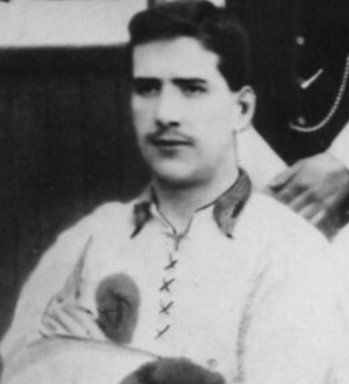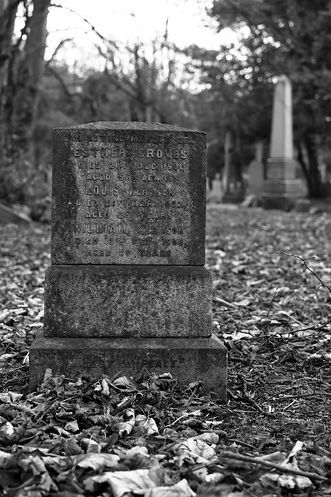Patrick William "Willie" Groves

Patrick William "Willie" Groves was another player, whose lives, personal and inevitably footballing, promised much but due to the curse of tuberculosis were ultimately short and brutal.
He was born in 1868 in the Gorbals, the son of Irish immigrants, his father a Hatter, but the family would take itself across the country when Willie was a baby. In fact, whilst it is said that the move was to Irish-dominated Leith it was not. The family, indeed Willie later in life, would all stay in Edinburgh itself in the web of wynds that lay and to some extent still lie in the triangle between the Old Town, The Meadows and Holyrood.
Nevertheless, as he began to make his footballing mark in his mid-teens it was first with Leith Harp, then Edinburgh Thistle, playing on The Meadows themselves, before finally in 1885 at not yet seventeen joining Hibernian, with which at eighteen he won the Scottish Cup in 1887 and from where at nineteen his first cap. In that match with an already established reputation for speed, dribbling, passing and shooting he scored as one of the central forwards, at which point it was inevitable that newly-formed Celtic would take an interest. In fact in 1888 he would be one of three who would move across.
However, with Scottish football still not officially professional there was bound to be temptation for players with credentials fully established in very the top flight to move South for potentially better money and for English clubs to do the tempting. In Groves case that would mean two seasons at Parkhead and two more caps before, somewhat unusually, West Bromwich, later a very "English" team, would come in.
In fact Groves' time at the Baggies' then ground of Stoney Lane was to be at best variable. In the League the club had in 1891, at the end of his first season, to apply for re-election and, whilst in 1893 it finished safely in eighth, 1891-2 had been sweet and sour. Finishing twelfth of fourteen re-election would again have been required had not the team, against the odds in beating arch rivals Aston Villa, taken the FA Cup. Indeed it was enough for Villa not just to sign Willie but be prepared to pay the very first £100 transfer-fee to do so and with immediate reward. At the end of the 1893-4 season the League title would be the Aston's club for the first time.
Aston Villa would in the 1880s be the dominant team in England. More League titles would be won in 1896, 1897 and 1899, the Cup in 1895 and 1897. But it would be done without Groves. As the 1894-5 season began, he aged twenty-six, the first signs of deteriorating health began to show themselves. Indeed he even returned to Edinburgh, it is said to die but rest had its effect. He was able to open a tobacconist business in the city and even to put his boots on again. He had a few games over a season back at Hibs. He played a couple of games for Celtic. He was even in 1897 persuaded to go South once more to Rushden in the Midland League, which, however, ended in 1899 with him in hospital in Northampton.
But his second period in England had been clearly done via Middlesbrough because in 1901 Groves was living in Wellingborough by Rushden as a Retired Football Player. And he was with Irish-born Catherine, seven years his senior, and six children, five born in Cleveland or thereabouts, the eldest fifteen, so born in 1885, and the sixth, Lewis, Groves' father's name, just a year old and born locally.

The background seems to have been that Willie Groves had met Catherine Finn nee Harrington, a widow from Teesside with already six children. They were said to have married there in 1898 and definitely had a daughter that same year, together then moving to Wellingborough whilst he was at Rushden, and there having not just one but two sons. The future would be that by 1903 Willie, Catherine, their three children and two of hers had moved back to Edinburgh, where he still had family and the couple applied for assistance. Willie was admitted to hospital. Catherine was awarded ten shillings per week.
That is until 1908, when Willie, at the age of just thirty-nine and a widower, Catherine having died in 1904, lost his battle against consumption to be buried in Edinburgh's Newington Cemetery with his parents.
Birth Locator:
1868 - 16, Hallside St., The Gorbals, Glasgow
Residence Locations:
1871 - 39, Lower View Craig Row, Dumbiedylkes, Edinburgh
1891 - (30, Lothian St., Edinburgh)
1901 - 42, Winstanley Rd., Wellingborough, Northamptonshire
1903 - 3, Comely Green Crescent, Edinburgh
1908 - 59, Forrest Road, Edinburgh
Death Locator:
1908 - Longmore Hospital, Edinburgh
Grave Locator:
Back to the Glasgow Southside Trail
or the SFHG Home page